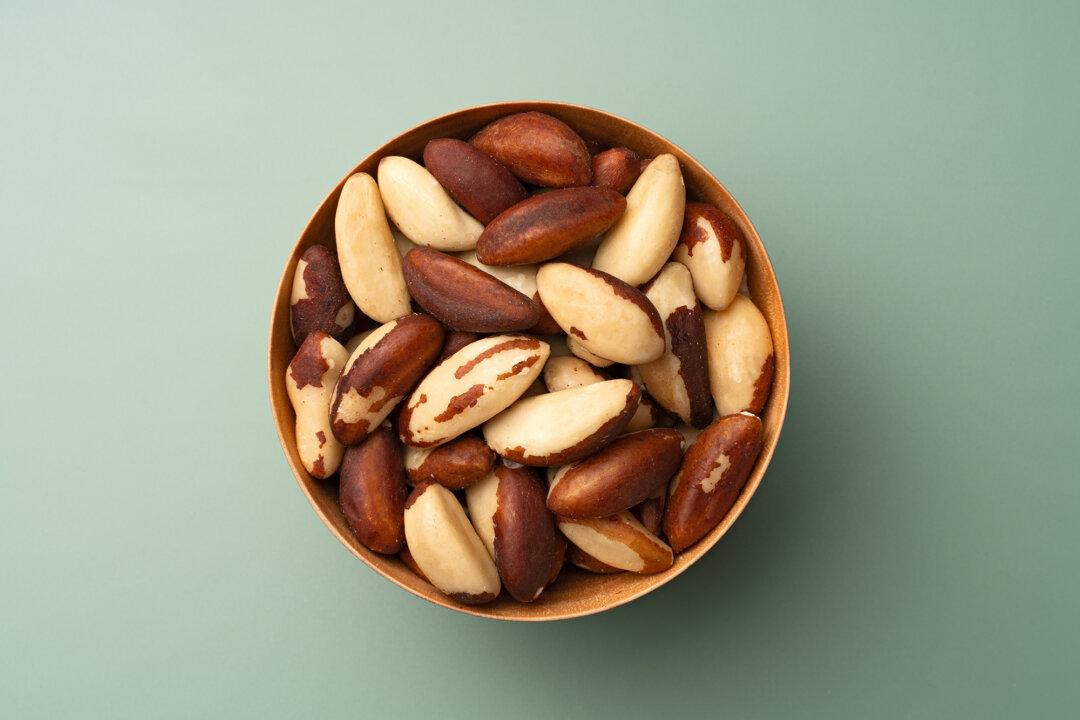“If something is made in a factory, it’s probably better left there—not in your body,” said Nasha Winters, a naturopathic doctor.
Food is more than calories—it’s information. If the input isn’t healthy, it shows up as signals in your body.
How Ultra-Processed Foods Interfere With Sleep
A 2024 study found that people with a higher intake of ultra-processed foods (UPFs) had a 53 percent higher risk of experiencing insomnia compared with those who ate fewer UPFs.Several biological mechanisms may explain the connection. Melatonin, the hormone that regulates the sleep-wake cycle, is made from serotonin, which in turn is synthesized from the amino acid tryptophan. Processed foods are often low in protein and tryptophan, which can interfere with the body’s ability to make sleep-regulating hormones.
By contrast, dietary patterns rich in nutrients and fiber are associated with a lower likelihood of insomnia. Most UPFs are stripped of the nutrients that support sleep—magnesium, B vitamins, zinc, tryptophan, omega-3s, and antioxidants, Winters said. UPFs also lack fiber and prebiotics, which nourish the gut microbiome, an important factor in sleep.
- Omega-3 Fatty Acids: Help regulate circadian rhythms and reduce inflammation
- Fiber: Stabilizes blood sugar—crucial for uninterrupted sleep
- Tryptophan: Needed to produce serotonin and melatonin
- Calcium: Assists in converting tryptophan into melatonin
- Magnesium: Promotes relaxation and melatonin production
- Vitamin B6: Supports serotonin and melatonin synthesis
Sodium, often high in processed foods, can raise blood pressure or cause dehydration, further disturbing sleep. Additives and preservatives may also affect brain chemistry in ways that make it harder to fall or stay asleep, Planells said.
Some UPFs also contain caffeine—such as energy drinks, sodas, and chocolate-flavored snacks—making it even harder to wind down at night.
“Ultra-processed foods are disruptive on multiple levels,” Winters said. “We’re trying to fuel a human body with nonfoods—it’s no wonder the system breaks down.”
Can UPF-Triggered Insomnia Be Reversed?
If you suspect that ultra-processed foods are interfering with your sleep, the good news is that dietary changes can make a real difference, Winters said.“It’s often faster than people think,” she noted.
Once blood sugar stabilizes and inflammation starts to subside, many people notice their sleep improving. Your body wants to heal—it just needs the right inputs. This isn’t fringe science, she added—it’s basic physiology.
“We’ve normalized a level of dysfunction that wasn’t even possible a few generations ago, when food was food—not a science experiment,” Winters said.
That said, Planells added that behavioral changes do take time. Insomnia is often multifactorial. Stress, anxiety, medications, environmental triggers, and lifestyle habits can all contribute, he said.
Where to Start
When shifting away from ultra-processed foods to improve sleep, focus on incorporating whole foods, Winters advised. Build your meals around protein, healthy fats, and vegetables. Stick to shopping the perimeter of the store, where you’ll usually find fresh produce, meat, dairy, and other less-processed items. The center aisles are typically where the packaged, shelf-stable UPFs tend to live.Better yet, visit your local farmer’s market. Avoid products with long ingredient lists, and choose foods your great-grandparents would recognize as real food.
- Cook at Home: Preparing meals yourself gives you control over the ingredients and helps reduce hidden additives. Think of it as crowding out ultra-processed foods rather than eliminating everything all at once.
- Pack Snacks: If you’re tempted by the vending machine at work, bring your own snacks—such as fruit, veggie sticks, nuts, seeds, or yogurt—for healthier, more satisfying options.
- Choose Complex Carbs: Swap refined carbs for whole grains and complex carbohydrates. Opt for oats, brown rice, quinoa, and whole-grain bread instead of white bread, pastries, and sugary snacks.
- Eat Out Wisely: When dining out, choose healthier sides like salads, vegetables, or fruit, or opt for grilled, baked, or roasted dishes over fried ones.
- Stay Hydrated: Processed foods can displace healthy fluids, so drink plenty of water to support restful sleep.
Just as poor nutrition can affect sleep, poor sleep can influence your food choices the next day, often leading to cravings for ultra-processed foods. This creates a cycle that’s tough to break. Being mindful of both your diet and sleep hygiene—such as maintaining a regular bedtime, limiting screen time before bed, and managing stress—can amplify the effectiveness of dietary changes, Planells said.
“Improving sleep through diet is a journey, not a one-size-fits-all solution. Focus on progress, not perfection.”




